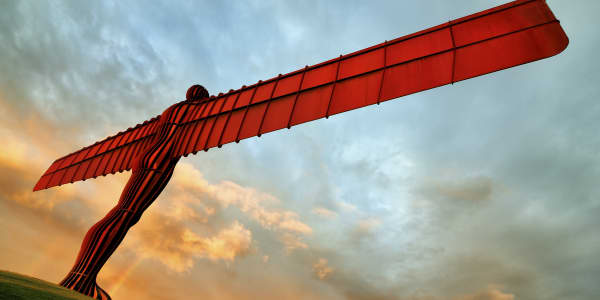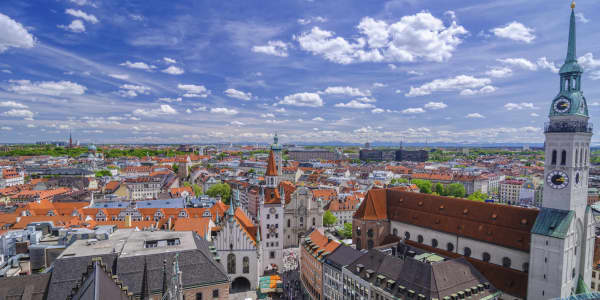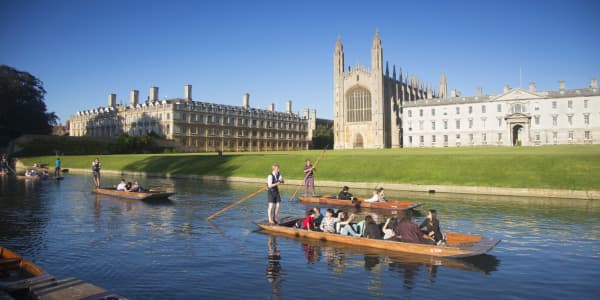With a population of 2 million, surrounded by tropical rain forest and located 1,300 kilometers from the Atlantic ocean, the urban sprawl of Manaus is a major tourist destination in Brazil.
While the city might not be a household name just yet, it has certainly been in the spotlight this summer, as one of the host cities of Brazil's World Cup soccer tournament.
But as the city showed off its state-of-the-art developments to the world, it also become a focal point for the controversy surrounding this year's World Cup. Questions have arisen on how the host cities will use the new stadiums and infrastructure with the tournament now packed up and moved on.
Located on the main road to the airport in Manaus, the Arena da Amazonia is a brand new stadium designed by Germany's GMP Architects. It has a roof that is designed to be "climate appropriate" by providing natural shading and make effective use of daylight, and its toilets flush with rainwater collected from it.
The stadium will also form part of a new multi-use sports park which houses field and track facilities, an aquatics center and an arena for the Brazilian dance of Samba – known as the "Sambadrome".
Read MoreEnglish soccer creating cash but no cup
But despite all this, the stadium became one of the more divisive symbols of the World Cup - a tournament that was played out against a background noise of disgruntled masses who were angry over the billions spent on the event.
Legacy concerns
Three workers died during the construction of the stadium, which only had four matches played in its grounds. Materials had to be shipped all the way from Europe to construct it, and the pitch was reportedly sprayed green to mask its poor condition ahead of the match between Italy and England.
But there are wider criticisms that could have more serious implications for the city.
Promised infrastructure projects – such as a state-of-the-art monorail - have so far failed to materialize, for example. There are also concerns over the stadium's legacy and local soccer team Fast Clube's ability to fill its 44,400 seats. HBO presenter John Oliver described it as having the potential to be the "world's most expensive bird toilet".
Architect Hubert Nienhoff, CEO and partner at GMP, defended the stadium calling it a "characteristic landmark" that signifies the careful use of natural resources in the region.
"The stadium offers many other options for staging large cultural events, for example as part of the carnival or other large local events," he told CNBC via email.
"It is the only venue in the region where such a large number of people can congregate in a place that is protected against the weather and can therefore be used as a cultural venue serving the entire region."
Read MoreWorld Cup sees fears of soccer finance bubble
The stadium - which is estimated to have cost $266 million - can also rely on existing infrastructure, Nienhoff said, negating the need to create large new means of access.
'Social upheaval'
The city could also get a boost from increased visibility as a result of the World Cup, according to the local government of Manaus.
Its dedicated division described the tournament as an opportunity for "business and investment" on its website, and said it will offer new possibilities for the city on the world stage.
Plans for the Manaus' monorail may still be up in the air, but what's clear is that the city has changed dramatically in the years preceding the World Cup.
Alex Phillips, an Australian who moved to Manaus in 2006 and set up a hostel in the city, said there is a lot more money around, and social upheaval is increasing.
Read MoreWorld Cup fever in Asia: Sick notes and no sleep
Rickety slums built on stilts over the creeks which run close to the main business district have disappeared, he explained, and added that this had happened in many of the city's suburbs.
"House prices have gone way up. People earn a lot more these days. There are no more street kids asking for money like there were when I first arrived," he told CNBC via email.
Phillips added that the local community were excited during the tournament, but he was critical of the local government for not doing more to promote the city.
"I guess to an extent there is an undertone of resentment or ambivalence to the fact that the average person won't be benefiting. At least not in the short term," he said.
"Hopefully the World Cup will bring about some of the attention Manaus deserves. If it happens though, it won't be through the efforts of the local government."





